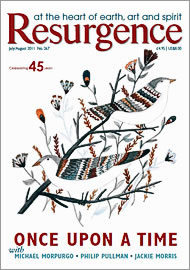Rampant consumerism is the great curse of our time, alienating us from ourselves, other people, our communities and the natural environment. It depletes the planet’s natural resources and can only end in catastrophe. The driving force of consumerism is ‘free market fundamentalism’, that hegemonic ideology that having dominated the globe for the last three decades claims to be the answer to everything. Together, consumerism and free market economics have created a world where profits are more important than life, where property comes before people and where perpetual growth is pursued with scant regard for the consequences to either the environment or the planet.
This, in a nutshell, is Chandra Nair’s diagnosis of our current predicament. But it is only half of his thesis. The other half concerns the challenge to Asia, by which he means mainly China and India, which he sees as being best placed to challenge and change the consumption-driven model of economics. And even if Asian leaders seem unwilling or unsure of how to change, Asia will, he insists, reframe capitalism and thus save the planet and all of us.
Nair’s optimism is based on two very convincing arguments.
Firstly, he cites the total unsustainability of the free market economy, and he gives the American corn industry – which has a 50% share of the global market – as an excellent illustration of what he asserts, with its success based on a relentless drive to achieve economies of scale and on unfair agricultural subsidies that are denied to other countries. Mechanisation reduced labour costs, but it also encouraged monocultures, which in turn increased the use of fertilisers and pesticides.
As production increased, so prices fell, and soon corn displaced other food staples. But there was then so much corn on the market that other uses had to be found, so it was employed for animal feed and to produce biofuel. At no point did the environmental impact of this monoculture figure. In fact American farmers pay nothing for the carbon emissions they generate. But factor this in and remove the unfair subsidies, and the price of corn would increase sharply. This, in turn, would impact on the meat industry, the fast-food chains and the makers of convenience foods, and before long the entire business-as-usual system would collapse.
Clearly China and India cannot pursue such models, which assume that Nature has limitless capacity. It is not that they refuse to accept the standard economic development model, asserts Nair, but that this model only worked when a small proportion of the world population was using it. Given the populations of India and China, the same model contains the seeds of the planet’s demise.
Secondly, the Asian countries have growing and discontented populations. The vast majority of poor people in India and China can no longer be ignored but must be lifted out of poverty. Given the total failure of ‘trickle down’ market economy, Asian leaders are now being forced to look elsewhere for solutions. And they have no choice but to look for economic models that simultaneously protect the environment and promote social good.
Consumptionomics is a thought-provoking book; and Nair is a fresh and sensible voice. My slight niggle is that he downplays Asian values, admitting that he does not want to revive the ‘Asian values’ debate of the 1980s, which emphasised community over individualism. Yet his limited prescription is itself based on certain values that he undoubtedly cherishes.
Prosperity is a social condition, associated with values and attached to beliefs about what makes a good society. In a culture that values materialism above all else, it is not surprising that consumerism is rampant and limitless growth is seen as a panacea. In Western cultures, prosperity is linked to individual property ownership, and to be prosperous is to be secure in one’s position in the exercise of power. It is this link that makes the Western notion of prosperity unjust, and inherently injurious to the planet and the future of humanity.
But cultures that value spiritual fulfilment, and community over individualism, see prosperity differently. And in the context of Asian values, the individual is not less important but can only exist in the context of a web of relationships that comprise not just family but an entire community.
Asian cultures insist that the same values, ethical and moral precepts should be applied to the individual and to the community, so the good life of the good person can only be fully realised in the good society.
Prosperity can therefore only be conceived as a condition that includes obligations and responsibilities to others. And if Asia is going to reformulate capitalism and save the planet, as Nair asserts, then it needs to go forward on its own spiritual and social standards.







